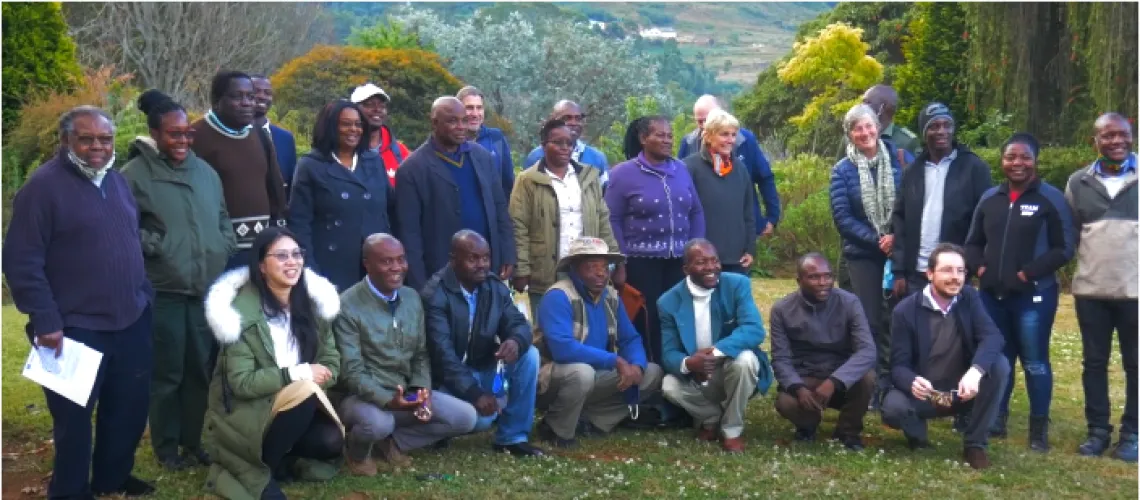Climate Risk Informed Decision Analysis (CRIDA) is being applied in Chimanimani district, Zimbabwe

Chimanimani CRIDA Workshop participants
UNESCO Be-Resilient Zimbabwe Program
Chimanimani is a mountainous district in eastern Zimbabwe known for its incredible beauty and biodiversity. However, the area is vulnerable to multiple weather hazards and climate threats, such as droughts, floods and landslides. In 2019, Cyclone Idai tore through Chimanimani, killing many residents and making it more vulnerable to future climate shocks. Loss of vegetation cover makes it more vulnerable to destruction from future flood waters and landslides. The number of extreme events, such as cyclones, is expected to increase in the future as well.
Because reductions in precipitation on the order of 30% are foreseen in the next several decades, there is a need to build resilience and capacity to adapt to climate change. Therefore, UNESCO G-WADI and its partners are building resilience in the region, in part by using the Climate Risk-Informed Decision Analysis, or CRIDA, process. This began with a stakeholders’ consultation meeting to identify the water security challenges and the impacts on the environment, and to identify the vulnerabilities that need to be addressed. The project is currently in phase 2 of the CRIDA process—conducting a vulnerability assessment, including using a climate “stress test”, to gain insight into the sensitivity of the region to future climate impacts. Then, alternative plans can be created in consultation with the stakeholders and decisions jointly made to help generate a more resilient future.
The project is coordinated by UNESCO as part of the Be-Resilient Zimbabwe Project, and is executed as part of the Zimbabwe Idai Recovery Project (ZIRP), funded by the World Bank and managed by UNOPS. The Flanders UNESCO Science Trust Fund (FUST), funded by the Government of Flanders provided further support to this project activity as part of the regional Be Resilient Project for Southern Africa. Project partners include the Alliance for Global Water Adaptation (AGWA), Deltares, and the University of Cincinnati.
A video of the project is at https://www.youtube.com/watch?v=Ovc3n3zTk-U. CRIDA is a five-step, collaborative bottom-up water resources planning framework to address deep uncertainties associated with climatic, demographic and land-use change. The CRIDA approach was jointly developed by UNESCO G-WADI, ICIWaRM, Deltares and AGWA, and has now been used globally for planning water resources infrastructure.
